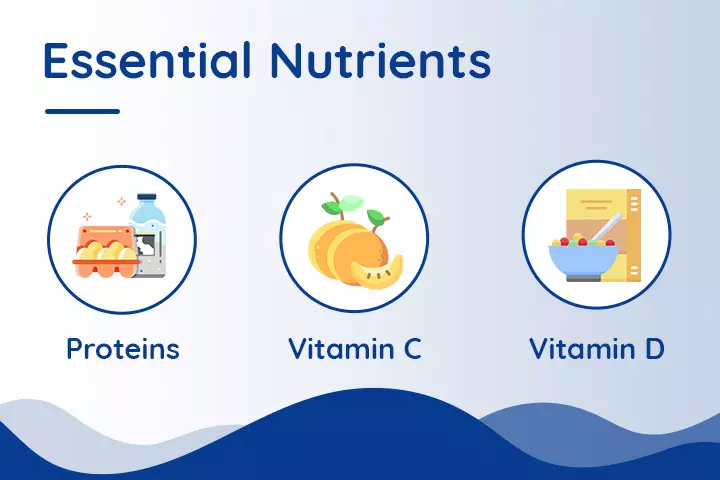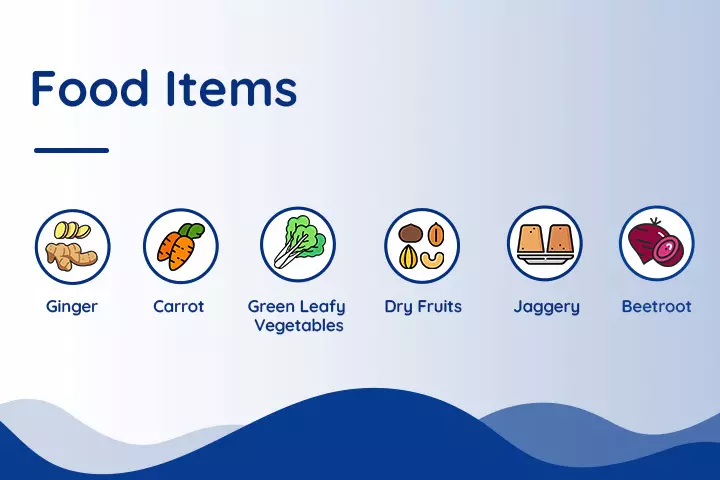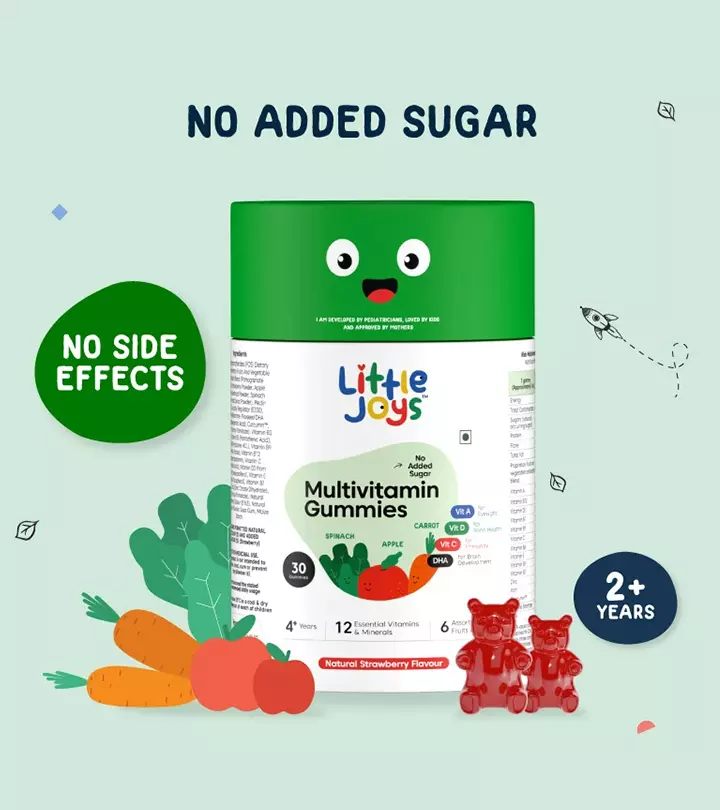

The journey of parenthood begins with a set of instructions–diet plans, bath care, sleep schedules–and the endless list of dos and don’ts may be a little overwhelming at times, but most of it is an essential part of the baby’s growth and development. This list, however, changes according to the changing seasons and weather conditions. We cannot adopt the same measures in hot weather as on colder days. We can bathe a baby every other day in summer, but doing so in winter may leave them with a coughing fit. Similarly, a child’s nutritional needs also change as the temperature dips. As the nip in the air provides a welcome relief from the sweltering summer heat, parents must also curate a balanced diet that helps build their child’s immunity and keep them warm during these months. To make the diet plan a little easier, we have listed a few items that should find a place in your little one’s meals.
Winter Nutrition Options For Children Aged 1-2 Years
In winter, the calories need to be increased to maintain body heat. Let’s take a look at the list below to understand how to go about it.
1. Essential Nutrients
Start incorporating high-protein foods like dairy products, eggs, sprouts, and soy into your child’s diet. The increase in protein helps raise body temperature since the body needs to work harder to absorb them (1).
Vitamin C
Vitamin C helps boost immunity, and its deficiency may affect children’s physical and mental growth, suggest studies (2). It is also efficient in helping prevent cold, seasonal flu, and cough. A few vitamin C-rich foods to add to your child’s diet are citrus fruits, capsicum, amla, and guava.
Vitamin D
Vitamin D enhances calcium absorption, and you may add food items like whole eggs, trout, salmon, and tuna to your child’s diet. Butter, fortified milk, and cereals are also rich sources of vitamin D. The deficiency of this sunshine vitamin may impair immune function and lead to upper respiratory tract infection (3).
2. Food Items
Additionally, you may add the following to your child’s diet during their first two years:
Ginger
Ginger’s medicinal properties are not unfamiliar to us. It has been used as a home remedy for cold, cough, and flu for centuries. You may add a little ginger juice to a glass of warm milk or use it in soups, dal, and curries.
Carrot
There’s a reason why carrots are a winter favorite. It is rich in beta-carotene, an essential ingredients for healthy eyesight. This beta-carotene is converted into vitamin A in the body, which in turn enhances vision, aids bone growth, and helps protect the body from infections. Beta-carotene also helps boost white blood cells, which aid in boosting immunity.
You may add carrot puree or juice to your child’s diet or spruce up their meals with some tasty carrot halwa.
Green Leafy Vegetables
Green leafy vegetables are packed with vitamins A and C, lutein, and folate. They are also rich in dietary fiber, which helps prevent constipation. Spinach spreads, pureed spinach with cottage cheese, and sandwiches are viable options for your baby’s diet. Additionally, you may also use them in a salad.
Dry Fruits
From raisins and dates to prunes and figs, dry fruits act as powerhouses of energy for children during the chilly season. They are also rich in iron and may help maintain hemoglobin levels (4). The high fiber content of these food items also helps prevent constipation.
Jaggery
Swapping white sugar with jaggery may work wonders for your child’s health. Jaggery contains zinc and antioxidants and can help boost immunity (5). It also helps provide relief from cold and cough.
Beetroot
This naturally sweet food contains vitamins A, K, C, and B, folate, and antioxidants. It is much healthier than processed foods containing sugar. You may include beetroot in the form of raita, salad, muffins, tikkis, or smoothies into the diet.
Foods To Avoid
Avoid adding fast food and soft drinks to your child’s diet. Mass-produced food like cookies, soda, candy, and chips are unhealthy. They are loaded with salt, sugar, chemicals, and fats and take up space in that little tummy, thus leaving no space for nutritious foods.
Digestive Issues
It is essential to understand that children may develop digestive problems when new items are introduced to their diet. While it is vital to keep a check on how each item affects the baby, you may ease the digestive issues with effective supplements like gripe water. With ayurvedic ingredients like Sarjikakshara and Anethum Graveolans oil, it may provide symptomatic relief from stomach aches, gas, and indigestion caused due to new food items. It is best to consult a pediatrician before introducing it to your baby and learn more about the recommended dosage.
The plummeting temperatures call for room heaters, cozy blankets, and geysers. However, these external agents work only if the immune system is robust enough to bear the chills. Kids are more prone to illnesses. Therefore, it is essential to curate a balanced diet and keep them hydrated and well-rested during winter.
References
- Postprandial thermogenesis is increased 100% on a high-protein
low-fat diet versus a high-carbohydrate low-fat diet in healthy - Essential role of vitamin C and zinc in child immunity and health
https://pubmed.ncbi.nlm.nih.gov/20515554/ - Vitamin D and the Immune System
https://www.ncbi.nlm.nih.gov/pmc/articles/PMC3166406/ - The Effect of a Date Consumption-Based Nutritional Program on Iron Deficiency Anemia in Primary School Girls Aged 8 to 10 Years Old in Zahedan (Iran)
https://www.ncbi.nlm.nih.gov/pmc/articles/PMC6927593/ - Value Addition and Fortification in Non-Centrifugal Sugar (Jaggery): A Potential Source of Functional and Nutraceutical Foods
https://www.ncbi.nlm.nih.gov/pmc/articles/PMC8314846/
Community Experiences
Join the conversation and become a part of our nurturing community! Share your stories, experiences, and insights to connect with fellow parents.
Read full bio of Dr. Reema Pandya



















